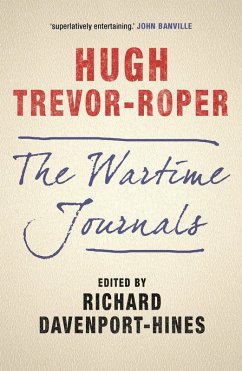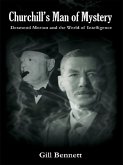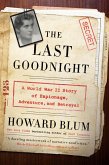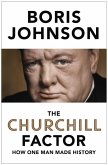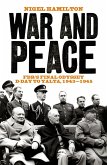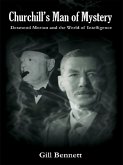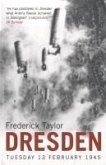As a British Intelligence Officer during World War II, Hugh Trevor-Roper was expressly forbidden from keeping a diary due to the sensitive and confidential nature of his work. He had many high-placed enemies in the Secret Intelligence Service who would have been pleased to use his journals to have him court-martialled or dismissed. However, he confided a record of his thoughts, contacts and plans to a series of slender notebooks inscribed OHMS ('On His Majesty's Service').
The Wartime Journals reveal the voice and experiences of a war-time 'backroom boy' who spent most of the war engaged in highly-confidential intelligence work in England - including breaking the cipher code of the German secret service, the Abwehr. He became an expert in German resistance plots and after the war interrogated many of Hitler's immediate circle, investigated Hitler's death in the Berlin bunker and personally retrieved Hitler's will from its secret hiding place. His writings tell of Whitehall officials, Chelsea literary coteries, Oxford dons, Secret Service men, the Home Counties professional classes, Northumberland gentry and Irish raconteurs 'making do' under war conditions - of his personal experience of the Blitz, of rationing, of cold, hunger and discomfort. The journals are an eloquent and evocative contribution to the history of the war-time Home Front.
The posthumous discovery of Trevor-Roper's secret journals - unknown even to his family and closest confidants - is an exciting archival find and provides an unusual and privileged view of the Allied war effort against Nazi Germany. The journals include some of the elegant, haunting notes made by Trevor-Roper during his post-war work and Trevor-Roper's inquisitive, analytic intelligence underlies every line. The resulting book offers an engaging - sometimes mischievous - and reflective study of both the human comedy and personal tragedy of wartime.
The Wartime Journals reveal the voice and experiences of a war-time 'backroom boy' who spent most of the war engaged in highly-confidential intelligence work in England - including breaking the cipher code of the German secret service, the Abwehr. He became an expert in German resistance plots and after the war interrogated many of Hitler's immediate circle, investigated Hitler's death in the Berlin bunker and personally retrieved Hitler's will from its secret hiding place. His writings tell of Whitehall officials, Chelsea literary coteries, Oxford dons, Secret Service men, the Home Counties professional classes, Northumberland gentry and Irish raconteurs 'making do' under war conditions - of his personal experience of the Blitz, of rationing, of cold, hunger and discomfort. The journals are an eloquent and evocative contribution to the history of the war-time Home Front.
The posthumous discovery of Trevor-Roper's secret journals - unknown even to his family and closest confidants - is an exciting archival find and provides an unusual and privileged view of the Allied war effort against Nazi Germany. The journals include some of the elegant, haunting notes made by Trevor-Roper during his post-war work and Trevor-Roper's inquisitive, analytic intelligence underlies every line. The resulting book offers an engaging - sometimes mischievous - and reflective study of both the human comedy and personal tragedy of wartime.

